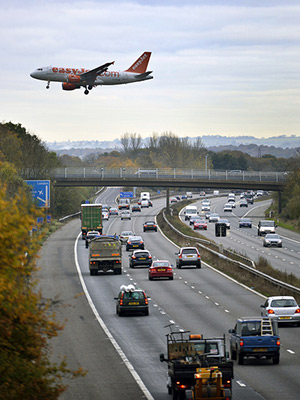Life transitions and travel behaviour
Life transitions and travel behaviour was an innovative project funded by the ESRC’s Secondary Data Analysis Initiative. It aimed to find out how people in the UK change their travel behaviours over the course of their lives with special attention to major life events such as starting a job, moving home and having children.
The study, which began in November 2012 and was carried out over an 18-month period, examined people’s travel routines and how they change over time.
Background
It is important to help governments around the world plan effective transport systems and policies. Such policies make an important contribution to tackling some of the big issues of the day, including: energy security and climate change, public health and obesity, how to create healthy urban environments, and supporting economic growth and reducing congestion.
Emerging research has established that significant changes in travel behaviour are often associated with life transitions. Life transitions involve a change in personal circumstances, typically marked by observable life events such as joining the labour force, moving home, having children or retiring.
This research project set out to explore the relationship between such life events (like moving home) and travel behaviour changes (like the number of cars owned or mode choice for getting to work).
Data and methods
The project used data from the Understanding Society survey and the British Household Panel Survey (BHPS).
Together, these surveys have tracked the lives of a nationally (UK) representative sample of individuals over multiple years. They have recorded information concerning household car ownership and commuting behaviour, as well as a variety of other information about people’s lives such as their relationships, employment, attitudes and health.
The survey data offered a unique opportunity to examine how individuals make changes to their travel behaviours over time in relation to life events.
Project aims
The project aimed to:
• identify the extent to which life transitions are associated with major turning points in travel behaviour related to car ownership and commuting;
• understand in what circumstances life transitions are likely to lead to turning points in car ownership and commuting behaviour;
• use the understanding gained above to identify how policy interventions can achieve desirable outcomes for transport; and
• build capacity in the transport field to use large-scale, longitudinal data sets to inform policy analysis.
Project outputs
The study generated strong evidence that people are much more likely to change travel behaviour at the time of major life events like moving home or changing jobs.
Household car ownership and life events
Life events relating to family and employment are major triggers for car ownership changes. The number of cars owned is strongly related to age of household members, household composition, economic status and residential context. But it also varies substantially among similar households, demonstrating that lifestyles and attitudes also play a role.
Job changes and home moves disrupt established commuting patterns
Car commuting is a stable phenomenon. Nearly two- thirds of workers commute to work by car and on average sustain this for 6 years, while the smaller share of workers who use public transport, walk or cycle only sustain it for 3 years on average. 1 in 10 car commuters stop getting to work this way each year while it is 3 in 10 for those using other modes.
Project website
See more detailed findings here. (Content not monitored or maintained by ISER)
Related links
Follow the project blog.
Team members
Dr Kiron Chatterjee
University of the West of England (UWE) Centre for Transport & Society
Dr Ben Clark
University of the West of England
Mr Tom Gerlach
Department for Transport
Dr Steve Melia
University of the West of England
Dr Gundi Knies
Research Fellow - ISER - University of Essex
Professor Heather Laurie
Professor of Sociology and Pro-Vice-Chancellor (Research) - University of Essex
Publications
Life events and travel behavior: exploring the interrelationship using UK Household Longitudinal Study data
Ben Clark, Kiron Chatterjee, Steve Melia, Gundi Knies, Heather Laurie,Journal Article

Photo credit Understanding Society
Start date
01 Nov 2012
End date
29 Apr 2014
Funder
Economic and Social Research Council